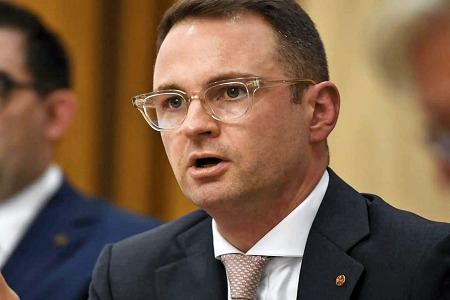Liberal Senator for New South Wales, Andrew Bragg, has submitted a private bill that proposes regulations for cryptocurrency services in the country to the Australian Parliament.
I have now introduced the Digital Assets (Market Regulation) Bill in the @AuSenate.
Link to the bill and explanatory statement is enclosed.https://t.co/pkjuNfvE0G
— Senator Andrew Bragg (@ajamesbragg) March 29, 2023
The bill, titled Digital Assets Market Regulation Bill 2023, aims to protect consumers and promote investors by including recommendations for stablecoins, licensing of exchanges, and custody requirements.
Bragg criticized the current Labor government for not implementing the 12 recommendations on cryptocurrency regulation which the Senate Select Committee on “Australia as a Technology and Financial Centre” introduced in October 2021.
Bragg highlighted that the Australian government’s failure to provide regulatory clarity to the sector had left Australian consumers vulnerable to industry-wide events such as FTX collapse. Bragg emphasized that Australia has the potential to become a digital asset hub if the appropriate measures are in place to safeguard digital asset consumers.
Senator Bragg stated during the session:
“It’s critical we get this done now because businesses aren’t just going to wait around, and rather than regulate through stealth which is what seems like the US is doing, we want to do it properly through the parliament.”
Australian ministers usually propose regulatory changes, but according to the Parliamentary Education Office, parliament members can introduce private members’ or private senators’ bills. These bills can take months or even years to pass through Parliament.
If the Australian Parliament approves Senator Bragg’s bill, individuals and businesses operating cryptocurrency exchanges, custody services, and stablecoin issuers in Australia will be mandated to obtain a licence from either the Australian Securities and Investments Commission or a foreign entity.
The bill also outlines obligations and prerequisites for exchanges, custody services, and stablecoin issuers, such as maintaining a minimum reserve or capital, segregating customer funds, reporting on customer holdings, and implementing auditing, assurance, and disclosure frameworks.
Earlier this month, DeFi Planet reported that the Australian Prudential Regulation Authority (APRA) had instructed local banks to provide information on their cryptocurrency transactions and disclose their involvement with startups and other crypto-related companies. This directive aimed to gain a more comprehensive understanding of potential risks and exposures within the system.
The regulatory agency stated that the measure was also put in place to improve regulatory oversight of the banking industry, which has become increasingly necessary in light of significant failures within the global financial system.
If you want to read more news articles like this, visit DeFi Planet and follow us on Twitter, LinkedIn, Facebook, Instagram, and CoinMarketCap Community.
“Take control of your crypto portfolio with MARKETS PRO, DeFi Planet’s suite of analytics tools.”





















